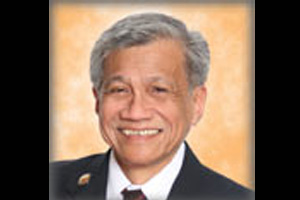Bill to compensate Marcos victims nears Congress OK

Akbayan Rep. Walden Bello, a member of the bicameral panel, said the compensation bill would ensure that the younger generation would learn about the atrocities committed during martial law.
A quarter century after the ouster of dictator Ferdinand Marcos, the government will officially hold accountable his martial law regime for human rights abuses and its victims compensated for their sufferings.
A bicameral conference committee will hold a final meeting Monday to smooth out the final version of a bill that seeks to compensate victims of abuses during the 14 years martial law was enforced before it is submitted for approval by the House of Representatives and the Senate, Albay Rep. Edcel Lagman said Sunday.
Compensation will come from the P10 billion of the Marcoses’ ill-gotten wealth that Swiss authorities have transferred to the Philippines. The amount that each would receive would depend on what kind of abuse they suffered.
Aside from that, the impending law would hold Marcos responsible for what transpired during his dictatorship.
“Finally, over two decades after the fall of the dictatorship, we will have a law that puts the responsibility for human rights abuses square on the shoulder of Marcos and provides justice for all those who suffered under his reign,” Akbayan Rep. Walden Bello said in a statement.
Article continues after this advertisementBello, a member of the bicameral panel, also said the bill would ensure that the younger generation would learn about the atrocities committed during martial law.
Article continues after this advertisementIt is important to impart the lessons from the Marcos regime to prevent a repeat of the dark period, he said.
“The nation is practically on the verge of forgetting the atrocities committed during the martial law period, and this is not by accident but because of the deliberate revisionist efforts of the Marcos camp to whitewash the memory of that period. Justice also lies in ensuring that Filipinos of all generations will not forget the dark, violent past, and the bill ensures that,” he said.
Contentious issues
Samahan ng mga Ex-Detainee Laban sa Detensyon at Aresto (Selda), for its part, said the bill was all the more significant for formally recognizing that abuses were committed during martial law and that there were those who did not take these sitting down.
“More than the monetary compensation, the bill represents the only formal, written document that martial law violated the human rights of Filipinos and that there were courageous people who fought the dictatorship,” the group said in a statement.
Selda said the bicameral panel’s approval of the bill’s final version was a victory not just for the victims, many of whom have continued the fight to hold the Marcoses accountable, but for the Filipino people.
During its meeting last week, the panel resolved the most contentious issues: To recognize conclusively the close to 10,000 plaintiffs in a Hawaii class suit against the Marcoses as martial law victims entitled to compensation.
Also entitled to conclusive presumption are the martial law victims recognized by the Bantayog ng mga Bayani Foundation, the panel agreed.
The House version had provided for conclusive presumption for the Hawaii plaintiffs while the Senate version wanted a disputable presumption, one that could still be challenged. Martial law victims’ groups had protested the disputable presumption, saying they may have to again endure the painful and rigorous process of proving their rights were violated during martial law.
More not recognized
The panel also agreed to do away with the provision setting aside 80 percent of the P10 billion compensation fund for the Hawaii claimants while the remaining 20 percent would be given to all other claimants who did not join the case.
Bello was among those who contested this, saying it would be unfair to thousands of other victims who did not join the Hawaii case, since they would only have access to a “leftover fund” of only 20 percent of the P10 billion. He said all of the victims must have fair access to the fund.
Commission on Human Rights (CHR) Chairperson Loretta Rosales said Monday that aside from the 9,500 claimants in the Hawaii suit, there could be even more martial law victims who did not join the case but were entitled to compensation. The CHR has roughly 6,000 cases of martial law abuses and these usually have more than one victim, according to Rosales.
“It’s not precise that we have a majority of the human rights violations in the class suit… If at the very minimum we say each case has two victims, that will already be 12,000 victims,” Rosales said.
She said she hoped that the other victims would come out and be recognized but at the same time said the compensation board would have to make sure to screen all the claimants thoroughly to prevent unscrupulous people from taking advantage of the fund. The CHR is willing to help in the endeavor, she added.